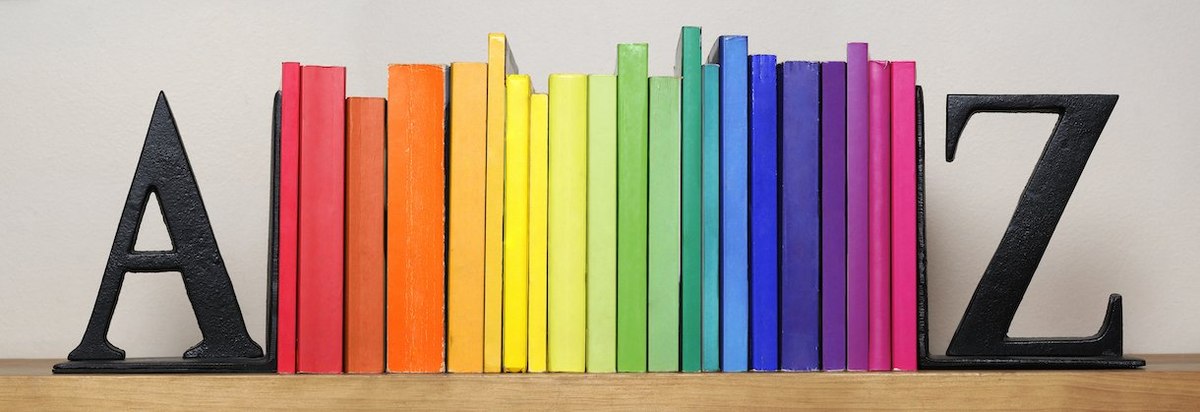Whether you sort your books by genre, author's name, the Dewey Decimal System, or the color of the spine, you're in the minority. More book-owning Americans say they don't organize their books at all (29%) than use any other single major strategy.
But that's not the whole story. YouGov polled more than 29,000 Americans about their book-owning habits. Here's what they said.
Most Americans own books — but not many
YouGov asked Americans whether they owned books, and found that the vast majority do: 85% say they owned at least one physical book.
That doesn't mean many of these private libraries are especially large. One in five Americans (20%) say they own between one and 10 physical books, while 14% own between 11 and 25 books, and 13% between 26 and 50.
Overall, counting the 9% who say they own no physical books, at least 69% of Americans own no more than 100 books (6% are unsure how many they own). Another 25% own at least 100 books, including 4% who own between 500 and 1,000 books, and 3% who own more than 1,000 volumes. (The wording of the poll allowed for some overlaps on round numbers, such as choices between owning "100 - 200 books" and "200 - 500" books.)
Physical books are a much more common thing for Americans to own than electronic books or e-books. Only around half of Americans say they own even one e-book, and only 9% of Americans say they own at least 100 e-books.
Education, money, and age are associated with book ownership
How many books Americans own are heavily tied up with other demographic variables. Those with large libraries tend to be older (more time to accumulate books), to be wealthier (more money to buy books), and to have more formal education (which often involves extensive reading).
For example, among Americans who earn less than 75% of the median national income, 15% own no books and 16% own at least 100. In contrast, among Americans who earn at least 200% of the median national income only 4% own no books and 40% own at least 100.
Looking at age, 19% of Americans between 31 and 35 years old own at least 100 physical books, compared to 31% of those between 51 and 55, and 42% of those between 71 and 75.
These relationships generally hold true even accounting for other factors. For example, among 31- to 35-year-olds, 8% of people whose highest level of education is a high school diploma own at least 100 books, compared to 25% of people in the same age range with postgraduate degrees.
One factor that doesn't appear to have a strong relationship with book ownership? Living with children and their sometimes vast home libraries. Within age groups, there are only minor differences in the share of Americans who own at least 100 books between households with and without children at home.
How Americans sort their books
That brings us back to the question of how all these books are arranged. Looking only at the 85% of Americans who own at least one book, the most common organizational structure among the ones included in the poll is nothing.
But this appears to be heavily influenced by how many books people own. Someone who only owns 10 books might not need to organize them in order to find a given volume; someone who owns 1,000 books might feel lost without some sorting method.
This shows up in the data. While overall 29% of book-owning Americans say they don't organize their books, it's true of 32% of those who own no more than 100 books, but just 22% of those who own at least 100.
After no organization, the second-most-popular organizational strategy for books is by genre or subject. That's used by 22% of book-owning Americans. But 37% of those with at least 100 books sort by subject, compared to only 15% of those with no more than 100.
Those with smaller book collections are more likely to sort by book size (23%) than are those with larger collections (12%). People with at least 100 books also are more likely to say they use some other system (9%) than are people with no more than 100 books (3%).
The relationship between the size of Americans' personal libraries and whether they sort by genre or subject is powerful and consistent. The more books someone owns, the less likely they are to use no organizational structure, and the more likely they are to sort by type of book.
No matter how large their book collections, very few Americans are adopting the Instagram-ready approach of sorting their books by color: Just 3% of both those with more and those with fewer than 100 books. It's the least popular book-sorting strategy of the seven YouGov asked about — consistent with a 2018 YouGov poll about Americans' book organization.
There are no significant gender differences in the likelihood of book owners sorting their libraries by color.
Sorting by color is more popular among younger Americans. Among book owners under 30, 6% say they sort by color, compared to less than 1% of book owners who are 65 or older.
Even among adults under 30, however, color is a less popular sorting method than genre, alphabetically by author, alphabetically by title, and the size of the book.
Methodology: This Daily Questions survey was conducted online on October 20 - 23, 2023 among 29,397 U.S. adults. The sample was weighted according to gender, age, race, education, U.S. census region, and political party.
See results of this poll:
- About how many electronic books do you own?
- About how many physical books do you own?
- What is the primary way you organize your physical books?
Image: Getty (David Malan)











